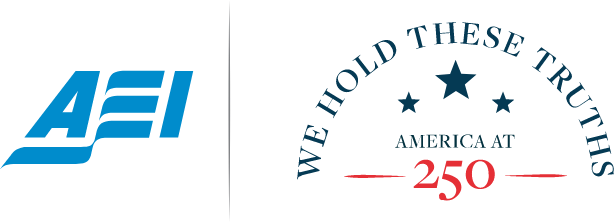Natural Rights, the Common Good, and the American Revolution
Natural Rights, Culture, and the Common Good Notes
- US Department of State, “Notice of Intent to Establish an Advisory Committee,” Federal Register 84, no. 104 (May 30, 2019): 25109, https://www.federalregister.gov/documents/2019/05/30/2019-11300/department-of-state-commission-on-unalienable-rights.
- Alexis Papazoglou, “The Sneaky Politics of ‘Natural Law,’” The New Republic, June 13, 2009, https://newrepublic.com/article/154192/sneaky-politics-natural-law; and Trudy Ring, “Is State Department’s ‘Natural Law’ Effort Code for Homophobia?,” Advocate, June 1, 2019, https://www.advocate.com/politics/2019/6/01/state-departments-natural-law-effort-code-homophobia.
- Papazoglou, “The Sneaky Politics of ‘Natural Law.’”
- John Rawls, A Theory of Justice (Harvard University Press, 1971), 31, 396.
- This section and the following one draw from Robert P. George, Constitutional Structures and Civic Virtues, Baltimore Bar Library, http://www.barlib.org/Constitutional%20Structures%20and%20Civic%20Virtues.pdf.
- On the rational (and moral) basis of political authority, see generally John Finnis, Natural Law and Natural Rights, 2nd ed. (Oxford University Press, 2011), 231–59.
- See John Finnis, “Law as Co-Ordination,” Ratio Juris 2, no. 1 (1989): 97–104, https://onlinelibrary.wiley.com/doi/10.1111/j.1467-9337.1989.tb00029.x.
- Edmund Burke, “Reflections on the Revolution in France,” in The Works of the Right Honourable Edmund Burke, vol. 3 (1887; Project Gutenberg, 2005), https://www.gutenberg.org/files/15679/15679-h/15679-h.htm#REFLECTIONS.
- Finnis, Natural Law and Natural Rights, 155.
- Isaiah Berlin, The Crooked Timber of Humanity: Chapters in the History of Ideas (Alfred A. Knopf, 1991), 208.
- John Finnis, “Is Natural Law Theory Compatible with Limited Government?,” in Robert P. George, ed., Natural Law, Liberalism, and Morality: Contemporary Essays (Clarendon Press, 1996), 1–26 (esp. at 5–9).
- Robert P. George, “The Concept of Public Morality,” The American Journal of Jurisprudence 45, no. 1 (2000): 17–31, https://academic.oup.com/ajj/article-abstract/45/1/17/218013.
- See Peter L. Berger and Richard John Neuhaus, To Empower People: The Role of Mediating Structures in Public Policy (American Enterprise Institute, 1977), https://www.aei.org/wp-content/uploads/2023/07/AEI-STUDIES-POLITICAL-139-1.pdf.
- Jeremy Waldron, “Parliamentary Recklessness: Why We Need to Legislate More Carefully,” lecture, Heritage Hotel, Auckland, New Zealand, July 28, 2008, 32–33, https://maxim.org.nz/content/uploads/2021/03/SJGL-2008-Monograph-Jeremy-Waldron.pdf.
- James Madison, “Second Annual Message to Congress,” speech, December 5, 1810, https://millercenter.org/the-presidency/presidential-speeches/december-5-1810-second-annual-message.
- Federalist, no. 51 (James Madison or Alexander Hamilton), https://founders.archives.gov/documents/Hamilton/01-04-02-0199.
- John Adams to the Officers of the First Brigade of the Third Division of the Militia of Massachusetts, October 11, 1798, Founders Online, https://founders.archives.gov/documents/Adams/99-02-02-3102.
